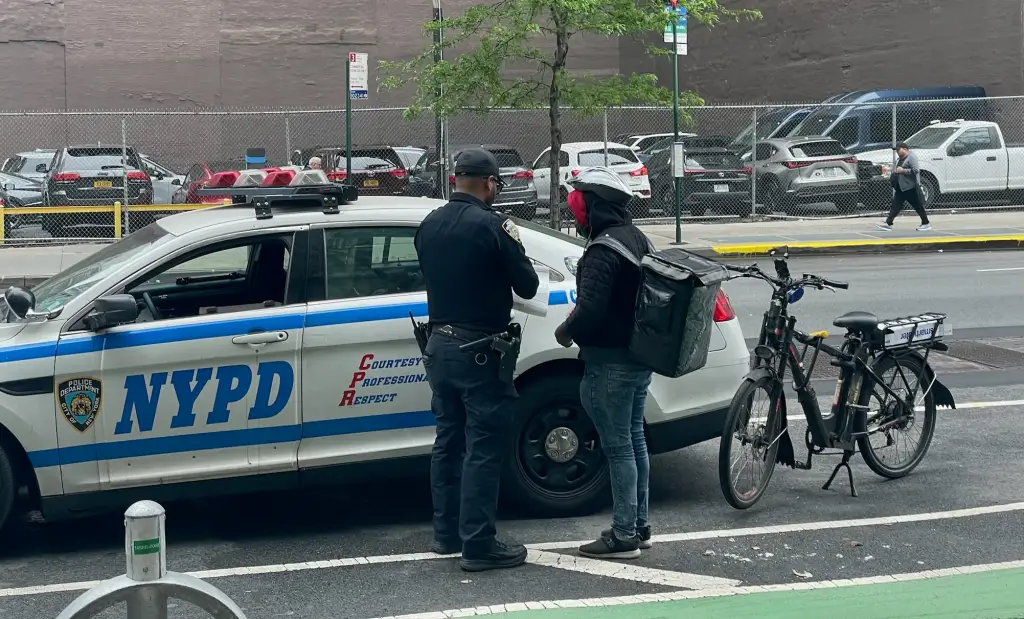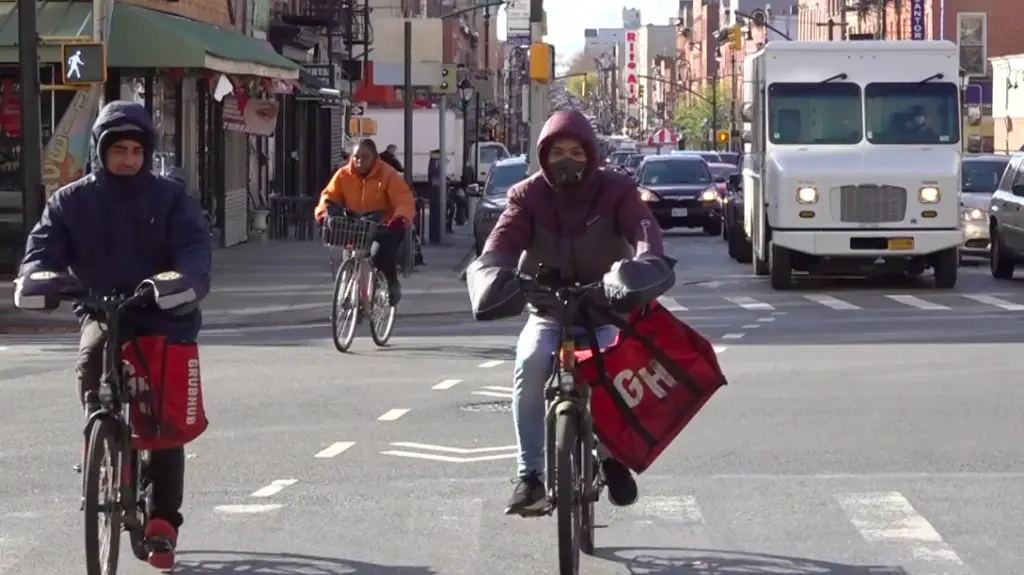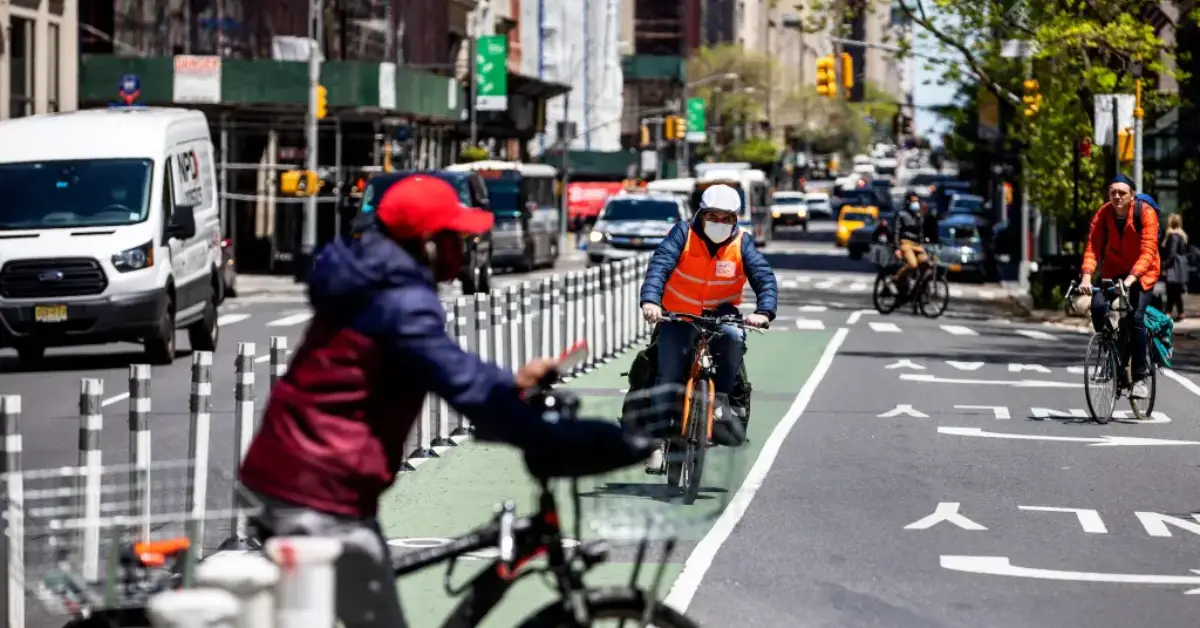A cyclist in New York City has filed a federal lawsuit against the New York Police Department (NYPD), claiming that he was wrongly ticketed multiple times for running red lights—despite obeying the law. The man, who rides his bike to commute, alleges that the NYPD issued him red-light violations even when he made legal turns that are allowed for cyclists under New York traffic rules.
This unusual case brings fresh attention to the ongoing tensions between cyclists and law enforcement in the city, raising questions about how traffic laws are enforced and whether cyclists are being unfairly penalized.
What the Lawsuit Says
According to court documents, the cyclist was issued several tickets over the last year for supposedly running red lights. However, he argues that he was making legal right turns at intersections—actions that are permitted under city law when done safely. The lawsuit claims that officers either misunderstood the law or ignored it altogether when writing the tickets.

In one instance, the cyclist says he made a legal right turn at a red light, as allowed by traffic rules, but still received a fine. He later provided video evidence from a camera mounted on his bike to support his claim. The footage allegedly shows him slowing down, checking for traffic, and turning safely.
His legal team argues that the repeated ticketing amounts to harassment and a violation of his rights under the U.S. Constitution. The lawsuit also claims the NYPD failed to properly train officers on how to interpret bicycle-related traffic laws, leading to repeated wrongful citations.
Why This Matters for Cyclists
Cyclists across New York City have long expressed frustration over what they see as unfair treatment by police. Many say they are frequently ticketed for minor infractions, while more serious traffic violations by cars and trucks are often overlooked. Advocates argue that such policing discourages people from biking, even as the city tries to promote cycling as a healthy and eco-friendly mode of transportation.
Transportation experts have also weighed in on the issue, noting that misunderstanding traffic laws—especially those related to bikes—can lead to unnecessary conflict between law enforcement and the cycling community.
NYPD Response
As of now, the NYPD has not made a public comment on the lawsuit. However, city officials say they are reviewing the matter and will respond in court. They also noted that officers undergo regular training on traffic enforcement, although the cyclist’s legal team argues that such training may not be sufficient when it comes to bike-specific laws.
What the Cyclist Wants

The lawsuit is not just about getting the tickets canceled. The cyclist is asking the court to order the NYPD to improve officer training, especially concerning cyclists’ rights and responsibilities on the road. He’s also seeking monetary compensation for the tickets and legal costs, as well as damages for emotional stress caused by the repeated citations.
The case could have bigger implications for how traffic laws are applied to cyclists in New York and potentially in other cities as well.
Growing Legal Trend?
This is not the first time a cyclist has taken legal action over red-light tickets. In recent years, similar cases have popped up in cities like San Francisco and Chicago, where riders allege they were fined for obeying traffic rules that differ slightly from those that apply to cars.
Legal experts say that if this lawsuit is successful, it could set a precedent for more cyclists to challenge wrongful citations and demand reforms in traffic enforcement policies.
Final Thoughts
This case shines a spotlight on the need for clearer enforcement of traffic laws that take into account the unique nature of cycling. As more people turn to bikes for commuting, delivery work, and exercise, the gap between law and enforcement needs to be addressed.
For now, the cyclist’s legal battle continues, but it has already sparked a wider conversation about fairness, safety, and accountability on New York’s streets.
Disclaimer: This article has been meticulously fact-checked by our team to ensure accuracy and uphold transparency. We strive to deliver trustworthy and dependable content to our readers.




